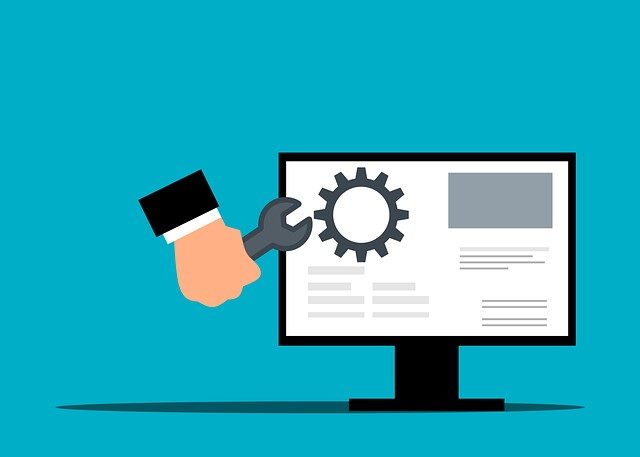Are you a small business owner in Calgary looking to streamline your financial operations? Look no further!
In this article, we will guide you through the world of bookkeeping and show you how to stay organized and maximize efficiency in your finances.
Bookkeeping is the backbone of any successful business, as it involves tracking and recording financial transactions accurately. However, many entrepreneurs find it challenging to juggle their daily operations while keeping up with the intricacies of bookkeeping.
That’s where our expertise comes in. We understand the importance of maintaining accurate financial records, and we’re here to provide you with practical tips and strategies to help you stay on top of your game.
From choosing the right bookkeeping software to implementing effective categorization methods, we’ll equip you with the tools you need to simplify your bookkeeping processes and make informed financial decisions.
So, let’s dive in and discover how bookkeeping can transform your business!
Table of Contents
The Importance of Bookkeeping for Businesses in Calgary
Bookkeeping is not just about complying with legal requirements or keeping the taxman happy. It plays a crucial role in the financial success of your business.
By maintaining accurate and up-to-date records, you gain valuable insights into your company’s financial health. This enables you to make informed decisions, identify areas for improvement, and seize opportunities for growth.
In Calgary, where businesses face fierce competition, having a solid grasp of your finances is essential. Bookkeeping provides you with a clear picture of your revenue, expenses, and cash flow.
With this information, you can monitor your company’s profitability, identify trends, and make strategic adjustments to ensure long-term success.
However, bookkeeping is definitely not a one-time task. It requires ongoing commitment and attention to detail.
By staying on top of your bookkeeping responsibilities, you can avoid costly mistakes, ensure compliance with tax regulations, and position your business for financial stability.

Benefits of Staying Organized and Efficient in Your Finances
Keeping your financial records organized and maintaining efficiency in your bookkeeping processes offer numerous benefits for your business.
Here are some of the key advantages:
1. Improved decision-making
Accurate and up-to-date financial information allows you to make informed decisions about pricing, inventory management, and resource allocation.
For instance, a manufacturing company can use financial data to decide whether to invest in new machinery or hire additional staff based on the available funds and expected returns.
By understanding your company’s financial position, you can identify opportunities, mitigate risks, and optimize your business strategies.
2. Better cash flow management
Cash flow is the lifeblood of an organization providing the necessary liquidity for day-to-day operations and strategic decision-making. By maintaining a clear record of your income and expenses, you can identify cash flow patterns and anticipate any shortfalls or surpluses.
This allows you to take proactive measures to manage your cash flow effectively, such as negotiating favorable payment terms with suppliers or tightening credit policies for customers.
3. financial transparency
Transparent financial records build trust with stakeholders, including investors, lenders, and potential business partners.
By demonstrating your commitment to accurate bookkeeping, you enhance your credibility and increase the likelihood of securing funding or forming strategic partnerships.
4. Simplified tax preparation
When tax season rolls around, having organized financial records can save you time, stress, and potentially money.
By keeping track of your income, expenses, and deductible items throughout the year, you can easily compile the necessary information for tax filing. This reduces the risk of errors, penalties, and audits.
If you stay organized and efficient in your bookkeeping, you can access these benefits and set your business on a path to success in Calgary’s highly competitive business environment.

Common Bookkeeping Challenges
While bookkeeping is pivotal for financial management, it also presents its own set of challenges. Many business owners in Calgary face the following common bookkeeping struggles:
1. Time Constraints
Small business owners often wear multiple hats and have limited time to dedicate to proper bookkeeping.
As a result, they may fall behind on recording transactions, reconciling accounts, or generating financial reports.
This can lead to a lack of visibility into the company’s financial health and potential missed opportunities.
2. Lack of expertise
Bookkeeping also requires knowledge of accounting principles, tax regulations, and financial software.
Small business owners who are not well-versed in these areas may struggle to maintain accurate records, classify transactions correctly, or interpret financial statements effectively.
3. Inefficient processes
Without streamlined bookkeeping processes in place, businesses may have issues with duplicate data entry, manual calculations, or disorganized filing systems.
These inefficiencies can lead to errors, delays, and increased administrative costs.

4. Poor record-keeping
Incomplete or messy financial records make it challenging to track income and expenses, reconcile accounts, or prepare financial statements.
This can result in inaccurate financial reporting, difficulty in identifying discrepancies, and potential legal and tax implications.
5. Changing tax regulations
Tax regulations and reporting requirements often change, requiring businesses to stay updated and adapt their bookkeeping practices accordingly. Failing to comply with these regulations can lead to penalties, audits, or even legal consequences.
While these challenges may seem daunting, there are practical solutions and strategies that can help businesses overcome them. In the next sections, we will explore essential bookkeeping tasks and best practices to help you stay organized and efficient in your finances.
Essential Bookkeeping Tasks and Best Practices
Effective bookkeeping involves a range of tasks and best practices that help you stay organized, maintain accuracy, and streamline your financial processes.
By implementing these essential bookkeeping tasks, you can set a solid foundation for your business’s financial success. Here are some key areas to focus on:
1. Maintaining a Chart of Accounts
A chart of accounts is a structured list of all the accounts used to record financial transactions in your business. It provides a framework for categorizing income, expenses, assets, liabilities, and equity.
By setting up a clear and logical chart of accounts, you can ensure consistency in your financial reporting and make it easier to track and analyze specific categories of transactions.
When designing your chart of accounts, consider the unique needs and structure of your business. Aim for a balance between providing sufficient detail for accurate record-keeping and maintaining simplicity for ease of use.
Regularly review and refine your chart of accounts as your business evolves, ensuring it reflects any changes in your operations, products, or services.
2. Recording Transactions Timely and Accurately
Timely and accurate recording of financial transactions is the foundation of good bookkeeping. Every business transaction, whether it’s a sale, purchase, payment, or receipt, needs to be recorded promptly and accurately in your books.
This includes capturing relevant details such as dates, amounts, descriptions, and supporting documentation.
Consider implementing a system that allows for real-time recording of transactions, such as cloud-based accounting software or mobile apps.
This ensures that you capture transactions as they occur, reducing the risk of errors or omissions.
Regularly review your recorded transactions to identify any discrepancies or missing information and take corrective action promptly.

3. Reconciling Bank and Credit Card Statements
Bank and credit card reconciliations are crucial for ensuring the accuracy of your financial records. Reconciling involves comparing your recorded transactions with those reported by your bank or credit card provider.
It helps identify discrepancies, such as missing or duplicate transactions and ensures that your records align with your bank balances.
Perform bank and credit card reconciliations regularly, ideally on a monthly basis, to catch any errors or unauthorized transactions early.
This process also provides an opportunity to identify any outstanding checks, unreconciled deposits, or bank errors that may require resolution.
Keep in mind that timely reconciliations not only improve accuracy but also help detect and prevent fraudulent activities.
4. Generating Financial Statements
Financial statements provide a snapshot of your business’s financial performance and position. The key financial statements include the income statement, balance sheet, and cash flow statement.
These statements allow you to assess your revenue, expenses, assets, liabilities, and equity, providing insights into your company’s profitability, liquidity, and financial health.
Generate financial statements regularly, such as monthly or quarterly, to monitor your business’s performance and identify any trends or anomalies.
Review these statements in detail, analyzing key metrics and ratios, and compare them against industry benchmarks or your own historical data.
This analysis helps you identify areas for improvement, make informed decisions, and communicate your financial position to stakeholders.
5. Implementing Internal Controls
Internal controls are policies, procedures, and systems that safeguard your business’s assets, prevent fraud, and ensure the accuracy of financial information.
They provide checks and balances to minimize the risk of errors or fraudulent activities and promote the integrity of your financial records.
Implementing internal controls involves various measures, such as segregating duties, requiring approval for financial transactions, regularly reviewing and reconciling accounts, and maintaining adequate backups of financial data.
Tailor your internal controls to the specific risks and needs of your business, and regularly evaluate their effectiveness to address any vulnerabilities or changes in your operations.
By focusing on these essential bookkeeping tasks and best practices, you can establish a solid foundation for your financial operations.
In the next section, we’ll discuss how to choose the right accounting software for your business.

Choosing the Right Accounting Software for Your Business
When choosing accounting software for your business in Calgary, consider factors such as scalability, user-friendliness, integration capabilities, reporting and analysis features, security and data protection measures, and cost.
Look for software that can accommodate your business’s growth, is intuitive to use, integrates with existing systems, offers robust reporting and analysis tools, ensures data security, and fits within your budget.
Research, compare options, read reviews, and take advantage of free trials to find the best accounting software that streamlines your bookkeeping processes and provides valuable financial insights.
By choosing the right accounting software, you can streamline your bookkeeping processes and gain valuable insights into your financial performance.
Tips for Managing Your Business Expenses Effectively
- Create a budget to manage cash flow, set goals, and monitor spending by outlining expected revenue and expenses, regularly reviewing and adjusting it as needed.
- Track expenses in real-time using mobile apps or cloud-based tools, categorizing them based on your chart of accounts for easy analysis and accurate record-keeping.
- Separate personal and business finances with separate bank accounts and credit cards to accurately track business expenses and simplify tax deductions.
- Negotiate with vendors by regularly reviewing contracts, seeking discounts or extended payment terms, and exploring alternative options for cost savings.
- Implement expense approval processes with spending limits, clear workflows, and communication to prevent unauthorized or unnecessary spending, while identifying areas for cost reduction.
- Automate expense tracking and reimbursement using software that enables digital submission, automates approvals, and integrates with accounting systems, improving accuracy and reducing administrative costs.
By implementing these tips, you can gain better control over your business expenses, optimize your cash flow, and improve your bottom line.
Streamline your business finances in Calgary
Unlock the full potential of your business by seeking professional help to optimize your financial operations and maximize efficiency as a small business owner in Calgary.
Consider partnering with our expert bookkeepers ready to assist you. With their knowledge and experience, they can provide tailored solutions to meet your unique needs and help you achieve financial success.
Contact us today and take the first step towards transforming your business’s bookkeeping practices.
Book a Free consultation today or contact us at 403-457-4232 or at info@rmiassociates.com.


